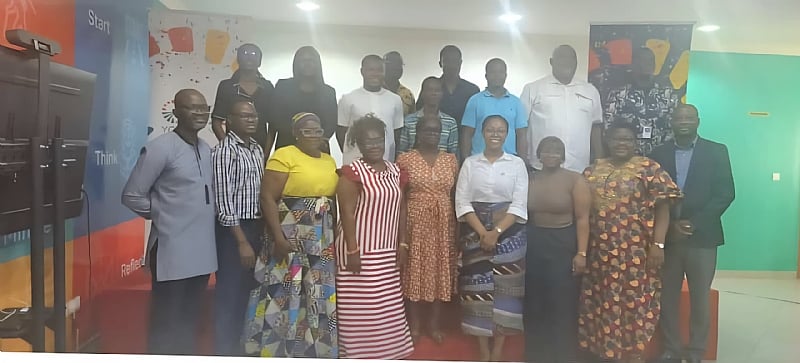The Youth Employment and Skills Pact (YES Pact), an initiative spearheaded by the Africa Centre for Economic Transformation (ACET), has convened a high-level Knowledge Café to deliberate on Ghana’s evolving ICT in Education Policy.
The event brought together a cross-section of stakeholders including government officials, private sector actors, and youth leaders to exchange ideas, evaluate progress, and offer recommendations aimed at shaping inclusive and effective educational reforms.
The YES Pact, a Pan-African coalition working to improve youth employment and skills development across the continent, supports governments in formulating, implementing, and assessing impactful policies. In Ghana, the project is executed by Youth Opportunity and Transformation in Africa (YOTA), under the leadership of Mr. Eric Safro, who serves as the Team Lead for Skills and Innovation at YOTA and coordinator for YES Pact in the country.
Mr. Safro underscored the collaborative nature of the initiative, explaining that YES Pact is designed not to confront governments, but to work alongside them while integrating the voices of young people, technical experts, and industry representatives into policy development.
“Instead of opposing the government, we collaborate with them, bringing young individuals, technical specialists, and industry representatives to the discussion,” he stated.
A key feature of YES Pact’s approach is its Knowledge Café platform, which facilitates youth engagement through the development of ‘knowledge products’ such as policy briefs and newsletters. At the event, members of the Young Diplomats of Ghana presented two policy briefs one on education and the other on employment along with a newsletter focused on education, all of which analyzed current policy impacts and offered actionable suggestions for improvement.
The forum also provided a vital space for deliberation on Ghana’s ICT in Education Policy, which is currently under development by a Technical Working Group. The policy is expected to be submitted to Cabinet for approval upon finalization. Additionally, the Guidance and Counselling Policy has also advanced significantly and is similarly expected to reach Cabinet soon.
During an interview section with the media, Mr. Safro emphasized the importance of language inclusion in digital education delivery, urging policymakers to consider Ghana’s linguistic diversity in order to enhance accessibility.
“Language can hinder access to ICT. If individuals can use technology for entertainment in their native languages, why not for education as well?” he questioned.
Mr. Sammy Amegayebo, Executive Director of the Ghana Real Estate Developers Association (GREDA) and Chair of the Sector Skills Body for Construction, echoed the need for closer alignment between education policy and industry needs. He stressed that industries are the ultimate beneficiaries of skills training and should therefore play a leading role in shaping educational strategies.
“As the main beneficiaries of skills training, we need to steer policy to meet industry requirements,” he said.
While lauding the ICT in Education Policy initiative, Mr. Amegayebo also highlighted the practical challenges involved in implementing language-inclusive strategies. “Using local languages is a good idea, but with more than 40 languages in Ghana, we might need to implement a dual system one local and one international language for effective execution,” he proposed.
Both speakers agreed that empowering Ghana’s youth with digital skills is critical to the nation’s future. They emphasized that achieving this goal requires inclusive, youth-centered, and well-coordinated policies that are rooted in the realities of Ghanaian society.
The YES Pact currently operates in six African countries, with Ghana’s chapter being hosted by YOTA. Through collaborative platforms like the Knowledge Café, the initiative continues to provide young people with meaningful opportunities to shape national policy and drive sustainable development across the continent.


